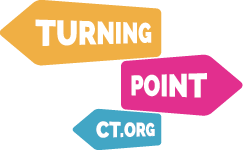Have you ever felt trapped before? Trapped in a health condition; a job, a toxic relationship, a way of thinking, creative burnout, a series of repeated mistakes, and so on?
Did you know you have the power to change that?
I didn’t think it was possible for someone like me that was suffering for years in all buckets of life. I’ve had to sit and stare this idea of freedom in the face, as I’ve spent many seasons chained to a metaphorical ground in my mind, like a flightless bird with clipped wings. My repetitive thinking, worry and stress makes me feel that I am living half my life. The other half is missing, broken off, or gone.
But I found a way to unchain myself, in all areas of my life that were in pain, and finally, move forward. It’s a single mindset shift, and while I am still in the self improving phase and perfecting this, it’s changed my life.
Now to be gentle and open, I understand some people are in threatening and uncharacteristic circumstances, and while these upcoming steps may not be a solution this mindset shift might offer some elements of peace in other areas.
To start, we need to really think about this idea of freedom, and the definition of it.
Step One: Understanding Your Freedom
Ask yourself: What does it mean to become free from something? In this broken, imperfect world, and in our imperfect bodies, is absolute freedom from something possible, or is it an ideal we strive for to keep us going?
Write down what you view freedom to look, sound, and feel like for you. While this might seem childlike or silly, it is often the childlike paths in our minds that have the least amount of built up hurdles from the “real world” and can provide clarity.
You need to go head to head with what you’re envisioning that version of your life to look like – taking it out of the romantic thought and putting it on paper for you to have a conversation with, and understand.
Be honest with yourself. You only harm yourself when you are dishonest. Honestly is the act of being vulnerable, and being open. This is how we make room for change and insight.
I’ve often wondered what I would be like, what life would be like, if I found and recovered that other half. I envision a much better version of myself, comparing my present self to her and disliking myself all the greater, catalyzing my pain. Hence why we need to get it on paper, and break the comparison cycle.
In reality, romanticizing who I should be and comparing myself just enabled me to believe I didn’t need to take action on change, because it seemed impossible or out of reach.
Now, by definition, freedom is the power to act and speak without restraint.
So, in the art of reverse engineering, we would need to, 1. Identify what we are trying to do, and 2. What is restraining us from meeting our goals?
Step Two: The Action Breakdown
Take that version of yourself and break it down. If you wrote it out, place it to the side and create two columns. The first column is a list of some of the traits you wrote down from this free life (some of the five senses, the location, the adjectives, etc).
The second column is the main or biggest action or change that needs to occur to make that first column a possibility. You should write an action next to each item on the list you made in the first column. Actions might be tangible things, events, habits, or mental shifts.
Now, if you’re like me, you probably notice that a lot of the actions have to do with yourself. Perhaps it’s setting boundaries, adding a new positive habit, or having a hard conversation. Sometimes it’s even deeper, like getting honest about a bad habit, a personality trait you’re not proud of, or will require sacrifices.
Absolutely there are instances where things are entirely out of our control, and don’t worry, I am going to get to that.
Bottom line? Oftentimes we are the one’s retraining ourselves, getting in the way, from our “free” or improved self.
Step Three: Identifying Intrusive Thoughts
Maybe, you’re like me, and you’ve spent weeks, months, years and decades plagued with intensive anxiety and negative thoughts. Perhaps you’ve broken a sweat trying to solve an unsolvable problem, and you can’t rest until you’ve reached an almost-good-enough conclusion.
Or you’ve ruminated to the point of total exhaustion if, like me, you have Obsessive Compulsive Disorder (OCD).
But worst of all is when the intrusive thoughts scare you to your core. When you begin to believe them. These irrational whispers in the back of your head that suddenly drive your beliefs about who you are, and your worth.
To ease them, you do compulsions. A series of thoughts or actions that disprove the thoughts, like triple checking that the stove is turned off.
An attempt to regain control, to know the certainty of your outcomes, despite the intrusive thought being entirely irrational most of the time.
Intrusive Thoughts Happen to Us All
Now regardless if you have OCD or not, intrusive thoughts happen to us all. Our compulsions might vary or take the form of something else, like repeating a bad habit. For example, ordering the takeout again, even if you’re on a healthy diet, because the diet feels unachievable, and you aren’t worth it or aren’t capable.
By ordering the food you are gaining comfort and certainty in your outcome, your current reality.
Intrusive thoughts are involuntary thoughts that occur in our minds, at random times. These thoughts are usually negative, and can be distressing or disturbing in nature.
On another piece of paper, write down common or recurring intrusive or negative thoughts you have about yourself.
Why? By acknowledging these intrusive thoughts you now have the power to let them go, not just let them keep your life on repeat. Intrusive or negative thoughts can exhaust us or prevent us from taking action in our lives. What does letting go look like? We hit that in our last step.
[If you are in high distress often I would encourage you to seek an OCD Specialist or mental health professional to provide treatment options and help. I recommend starting with The International OCD Foundation to search for board-certified professionals.
Understanding how intrusive thoughts operate can change your life, and can become a tool for the rest of your life. Ignoring how this cycle works might be what’s holding you back.
Step Four: Catch and Release for Freedom
Now that you’ve done the work it’s time to come up with a plan. But, we often kick ourselves because we try to solve all life buckets, negative habits, at once – and fail. Duh. We are only human. Not fictional characters, or God, or in a movie. We don’t get the change montage in three minutes or two chapters.
Pick one thing and implement it this week – what is the main action you wrote down? Take it further, plan it out, figure out all the steps. Then do it.
By the way, you don’t need to wait for “the start of the week” to start a habit. That’s a form of resistance and excuse. I fell for it a lot. Cross check this plan with your intrusive thoughts, what thoughts might discourage you from making a change?
Letting Go
One of the biggest things we can do in our life, after we come up with a few acknowledgements and actions, is letting go of the rest.
Tell your intrusive thoughts that you don’t actually know the outcome or the answer. It could be true, or not true. Regardless, you don’t care. You don’t need to prove or disprove. You don’t need to repeat a bad habit or compulsion for comfort. It’s not worth your time.
It’s also important to acknowledge the many life things that are out of your control, and letting it go. For me personally, I am a Christian, and the most freeing thing I can do is give it over to my Creator, my God.
Everytime I start to get overwhelmed and continually worry, I ask myself, “Where could I be effectively putting my energy instead?”
It’s also important to let go of this “pure and ideal self” you have in mind. You want progress. Happiness, fulfillment and freedom come from progress. Investing in yourself. Reaching your goals, not this perfect moment or person.
Want to read a bit more about happiness? Checkout my other article on Navigating Happiness with Mental Health.
Written by Sarah Edwards (@setapart_company), TPCT Project Coordinator
Disclaimer: Sarah Edwards is not a certified or licensed mental health professional. Rather someone sharing real life experience and findings for others to find commonality and seek actionable steps needed for them.





